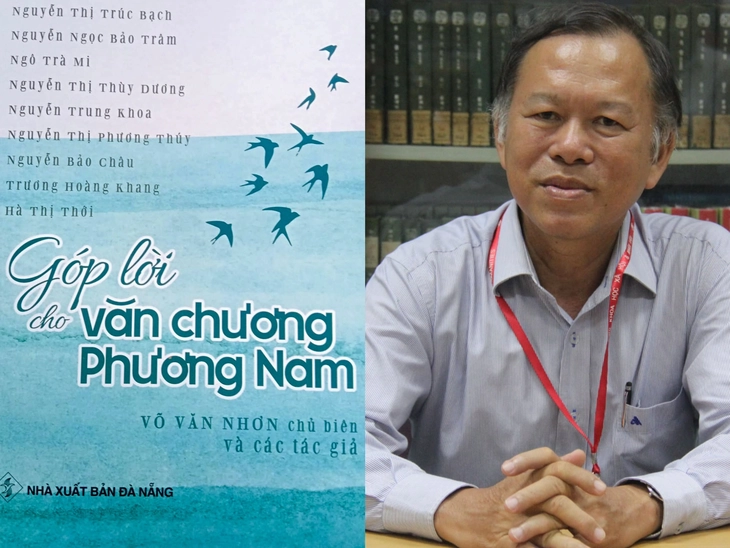
The book Contributing to Southern Literature edited by Associate Professor, Dr. Vo Van Nhon - Photo: HO LAM
On the morning of March 28, at the University of Social Sciences and Humanities (Ho Chi Minh City National University), a book launch event took place , Contributing to Southern Literature, edited by Associate Professor, Dr. Vo Van Nhon.
This is the book that Mr. Vo Van Nhon wrote with his colleagues, researchers, and students to express their interests in Southern literature, an interesting part of the Vietnamese literary stream.
Southern literature has many milestones.
In the book, the authors have examined a number of landmark and significant issues of Southern literature such as: who discovered the story of Teacher Lazaro Phien by Nguyen Trong Quan, the first modern novel of Vietnam; short stories and novels in the Southern resistance zone in the patriotic literature flow during the French resistance (1945 - 1954); young adult literature in Vietnam...
Mr. Vo Van Nhon relied on the strengths of each author to invite them to collaborate on writing books.
As Associate Professor, Dr. Doan Le Giang was the head of two key topics at the National University level on Southern literature in the late 19th and early 20th centuries, he can summarize the characteristics of Southern literature.
Or Ms. Le Thuy Tuong Vi taught art studies, so Mr. Vo Van Nhon asked her to analyze the modernity in Tuong cha Minh , the first modern drama of Vietnamese literature.
"The writers studied in this book, some live and work in An Giang such as: teacher, writer Truong Chi Hung, a very promising young writer; some are pioneer writers of Southern Vietnamese national language literature such as: Nguyen Trong Quan, Dang Thuc Lieng.
There are people who owned the most popular works in the early 20th century like Le Hoang Muu; there are people who became famous from the New Poetry Movement like Quach Tan; there are people who came from the Da Dai poetry group with the desire to innovate poetry like Tran Mai Chau; there are people who are contemporary writers with deep ecological feminism awareness like Ly Lan..." - Mr. Nhon said.
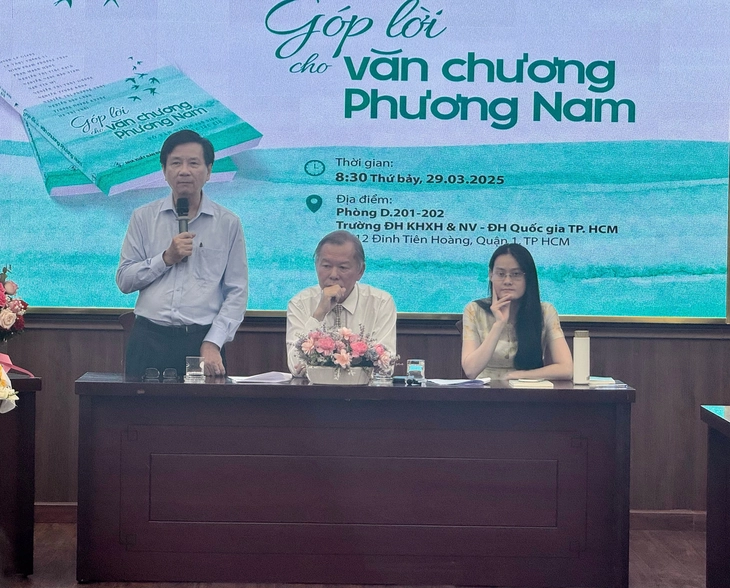
Mr. Doan Le Giang (left) and Mr. Vo Van Nhon share about the book - Photo: HO LAM
Strong patriotism, democratic spirit, outward-looking and pioneering consciousness
According to Associate Professor Dr. Doan Le Giang, anyone who wants to study the modernization of Vietnamese culture and literature without seriously studying the South is wrong - no matter how hard-working young researchers or how high-ranking their "superiors" are.
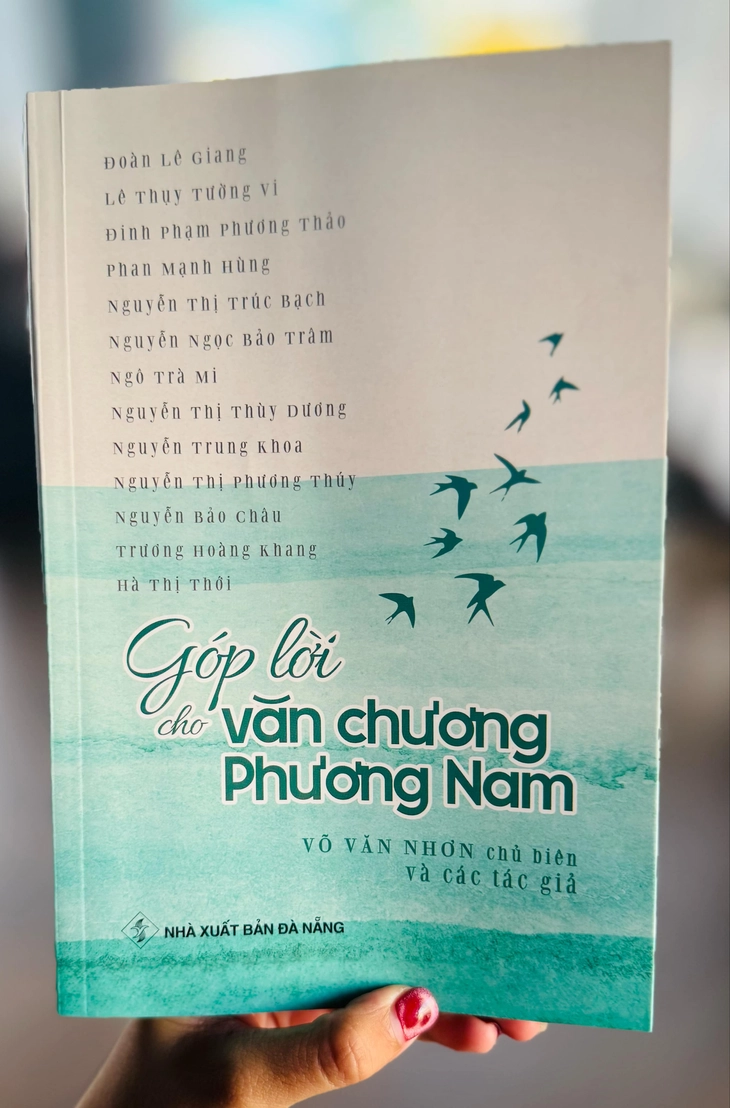
Books Contributing to Southern Literature - Photo: HO LAM
"Anyone who understands and likes Southern literature always has an open mind. I've seen that from my friends and acquaintances.
"The South is still a treasure trove inviting everyone to explore," said Mr. Le Giang.
In the first article of the book entitled In Search of Characteristics of Southern Vietnamese National Language Literature in the Late 19th and Early 20th Centuries, Mr. Vo Van Nhon and Mr. Doan Le Giang clearly analyzed 4 characteristics of Southern Vietnamese national language novels in the late 19th and early 20th centuries.
It is a pioneer on the path of modernization; imbued with patriotism; rich in morality and democratic spirit;
Has an extroverted consciousness, focuses on entertainment functions and is very interested in the masses, especially the common people.
Speaking of pioneering, the authors pointed out that Cochinchina was the first place to have a novel writing contest. That contest was initiated by editor Tran Chanh Chieu in the Nong Co Min Dam newspaper in 1906.
Due to its early closeness to Western novels, Southern literature had the earliest works imitating Western novels such as: Who can do it (1919) by Ho Bieu Chanh, Tien can bao hau (1920) by Le Hoang Muu...
According to research, patriotism was also the cause of the historical novel writing movement from the mid-1920s onwards, especially novels about national history.
Not counting Truong Duy Toan and Tan Dan Tu, two writers specializing in writing about the history of the South during the Nguyen Anh period, the authors also pointed out a number of authors writing about the history of the Ly Tran Le people.
Like Ho Bieu Chanh with Nang ngan cang thuong (1930) wrote about the history of Le Thanh Tong period; Nguyen Chanh Sat had a 4-volume historical novel Vietnam Le Thai To (1929)...
Pham Minh Kien is the writer who wrote the most national historical novels, including 6 works. They are: For the Fallen Flowers (1926), Vietnam Heroes - Risking Their Lives (1926), Vietnam Ly Trung Hung (Vietnam Ly Thuong Kiet) (1929), Le Dynasty Ly Thi (1931), Tien Le Van Mat (1932), Tran Hung Dao (1933).
As for the moral tendency, it can be clearly seen in Ho Bieu Chanh's novels. His novels focus on loyalty ( The Wind Blows, The Heavy Burden of the Common Man ), filial piety ( The Bitter Taste of Life, A Bit of a Spiritual Fate, A Heavy Duty of Father and Son ), chastity ( The Interpreter, A Forced Smile ), and righteousness ( The Lord of the Golden Turtle Ship ).
Regarding the outward-looking consciousness of Southern novels, Mr. Nhon and Mr. Giang commented that they are also expressed in their topicality, in being closely linked to journalism.
"Often published in newspapers before being printed as books, Southern novels are very quick responses to the burning issues of life. Reportage novels like Dong Que by Phi Van are such current events novels," the authors said.
Source: https://tuoitre.vn/ai-co-hieu-biet-va-thich-van-chuong-phuong-nam-thi-nguoi-ay-luon-co-dau-oc-rong-mo-20250329141655669.htm


![[Photo] General Secretary To Lam arrives in Minsk, begins state visit to Belarus](https://vphoto.vietnam.vn/thumb/1200x675/vietnam/resource/IMAGE/2025/5/11/76602f587468437f8b5b7104495f444d)



![[Photo] General Secretary To Lam meets and expresses gratitude to Vietnam's Belarusian friends](https://vphoto.vietnam.vn/thumb/1200x675/vietnam/resource/IMAGE/2025/5/11/c515ee2054c54a87aa8a7cb520f2fa6e)
![[Photo] General Secretary To Lam concludes visit to Russia, departs for Belarus](https://vphoto.vietnam.vn/thumb/1200x675/vietnam/resource/IMAGE/2025/5/11/0acf1081a95e4b1d9886c67fdafd95ed)

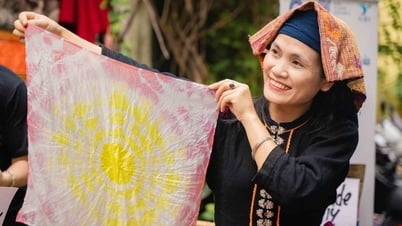


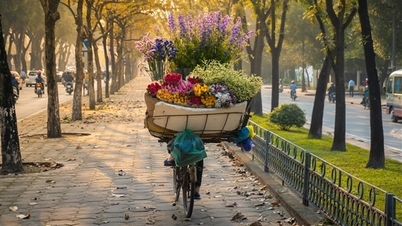
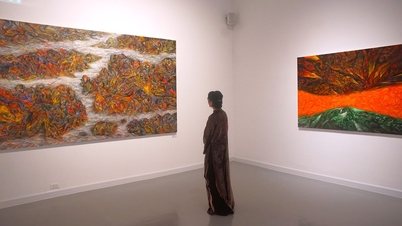





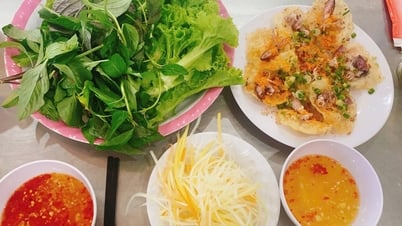


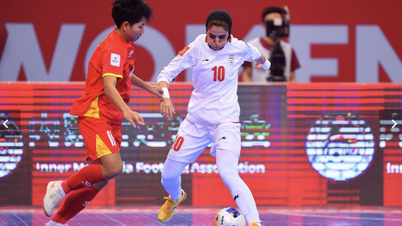

![[Photo] National Assembly Chairman Tran Thanh Man attends the Party Congress of the Committee for Culture and Social Affairs](https://vphoto.vietnam.vn/thumb/1200x675/vietnam/resource/IMAGE/2025/5/11/f5ed02beb9404bca998a08b34ef255a6)






























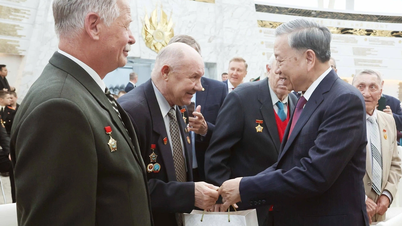
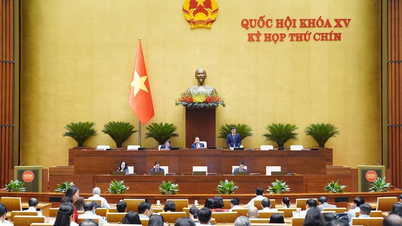
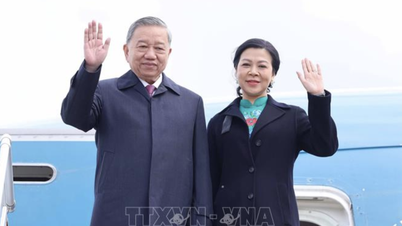










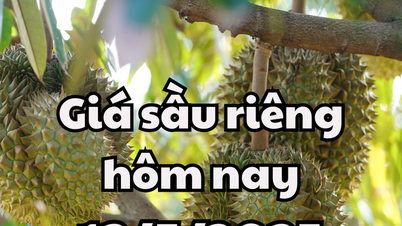





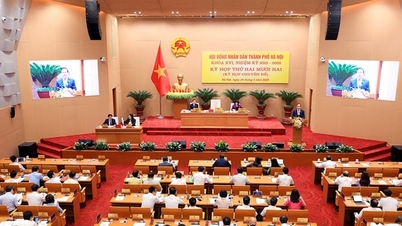













Comment (0)